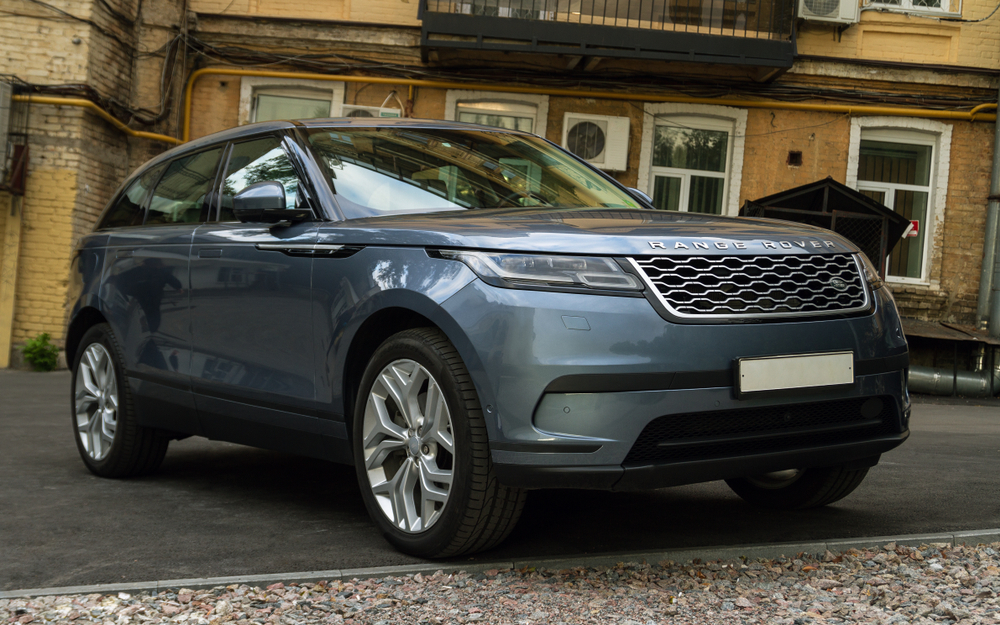
It described how some insurers were so alarmed at the rate of car thefts in the UK that they had started to refuse to cover some of the country’s most popular four-by-four and Sports Utility Vehicles (SUVs).
Sadly, the situation has not improved since.
In fact, the latest crime data issued by the Office for National Statistics (ONS) late last month illustrated that the theft of vehicles continues to accelerate.
During the 12 months to the end of September, there were 132,489 cars and vans stolen across England and Wales – up eight per cent on the previous year.
New research by Daily Mail Online has broken down the overall figures to show how premium makes are particularly likely to be targeted.
The Mail’s list is topped by the Lexus RX, with one-in-46 of that model on British roads being stolen.
However, five of the 10 vehicles taken most often by thieves are made by Jaguar Land Rover, including various Range Rover variants and the Land Rover Discovery.
Even though fewer such models have been sold in this country than, say, Toyotas or Volkswagens, the Mail’s study has revealed that Land Rovers are proportionately more than three times more likely to be stolen than a Ford or an Audi.
As I’ve been explaining to the Mail’s Oliver Price, these figures bear out a pattern which is depressingly familiar to myself and my colleagues at Broadway.
Every single day, we deal with underwriters at major insurers and they tell us of a growing toll of theft-related car claims.
Such activity is of course, of concern to more than insurers and the drivers who have their motors taken.
Motorists fortunate enough to escape the attention of car thieves are still hit in the pocket when it comes to renewing their policies, as Broadway knows all too well.
One individual asked for our help after being told that their annual premium would be £9,000. Another was informed that cover for their four-by-four included a £25,000 theft excess clause.
Both those examples sound fairly extreme but they happen because insurers take the frequency of theft into account when it comes to deciding the price and availability of all cover.
The situation has become so acute, I should point out, that more insurers have taken the step first; namely, to stop providing cover as a direct response to the number of thefts which are happening.
For a time, they included Jaguar Land Rover’s own insurance arm.
No doubt conscious of the impact which a high volume of thefts might have on the number of drivers visiting showrooms, Jaguar Land Rover has recently boasted that its newer models, including the relaunched Defender, have more robust security measures.
It has also announced plans to upgrade the anti-theft technology on vehicles sold between 2018 and 2022.
Furthermore, Jaguar Land Rover is contributing to law enforcement efforts to thwart criminals who go for its pricier motors, following suggestions that some are actually stolen to order for resale on the black market overseas.
Broadway’s exchanges with underwriters involve far more than discussions about the terrible scale of the car theft problem.
Together, we work hard to provide clients with detailed advice about how best they might secure cover if they intend to buy some of the vehicles on the Mail’s most wanted list.
Yet, as I have told that publication, we are increasingly finding that drivers are adapting their car buying habits in two notable ways.
In my experience, they are more inclined than ever before to check whether cover is available and how much it might be based on their personal circumstances – such as their driving history, where they live and how they plan to phyiscally protect their intended vehicle of choice – in advance of agreeing a purchase.
Even more significant is the fact that drivers are now changing their minds about what they will buy because they want to be able to find insurance, don’t want to pay five-figure premiums each year and have no desire to see their prized car added to the nation’s crime statistics.
What that all tells me is that drivers are more aware that insurance is not just about securing the cheapest quote each year.
At its best, insurance is a three-way process, involving an open and informed discussion between insurers, motorists and brokers about how to improve the prospects of obtaining the right cover for a vehicle and – even more importantly – helping keep SUVs, hypercars and the more humble hatchback out of the clutches of criminals.

Written by Daniel Lloyd-John, Chief Executive, Broadway Insurance Brokers
